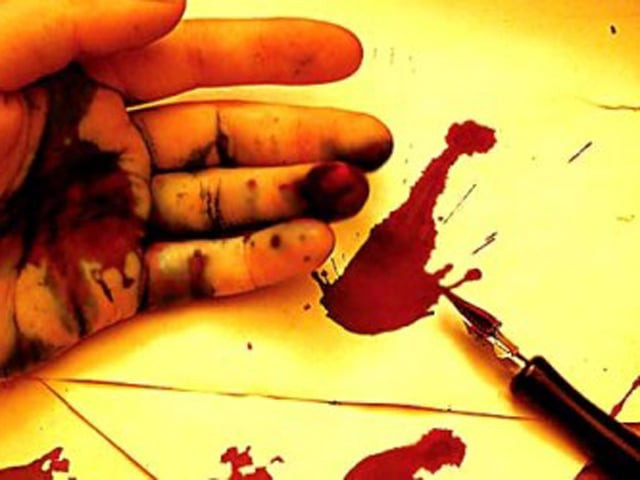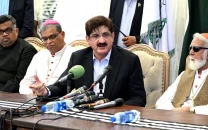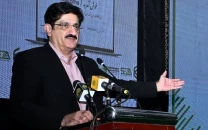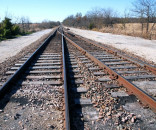Conference: Journalists from rural Sindh relate their problems
Journalists from rural Sindh felt left down by their counterparts working in big cities.

Journalists and members of the civil society discussed media freedom and threats faced by journalists in Pakistan at a round table conference titled, “Attacks on Journalists and Media Freedom” in Hyderabad and Karachi at the press club on Wednesday.
It was organised by South Asian Media Commission Pakistan, South Asian Free Media Association and Karachi Press Club (KPC).
Mazhar Abbas, the former secretary general of Pakistan Federal Union of Journalists (PFUJ), he said that the killing of journalists in Sindh started in 1979 when three journalists were killed in Khairpur and Hyderabad on the same day. He criticised the journalists who investigate issues but do nothing to investigate the killings of their own colleagues. “They only make a package on their deaths,” he said.
According to Mazhar, in most cases the editors and the news desk do foresee the sensitivity of the situation and areas where the reporters work from. “Sometimes the editing and headlines prove fatal for the correspondents.” Abbas referred to the murder of Dr Chishti Mujahid who was killed in Quetta, because of the headline of his column which the editor had written.
“Our TV channels are also involved in this practice,” said Abbas. “The people on the desk do not have any idea about what happens on the ground. They too are untrained.”
He appealed to the news anchors not to ask the reporters working in sensitive areas questions that they cannot answer during live broadcast.
The president of Media Commission Pakistan, Muhammad Ziauddin agreed with Abbas. He said that the representatives of media organisations should meet the political leaders face to face to clear issues. He appreciated the Sindhi media and said its reach is even greater than English media.
Imtiaz Alam, the secretary of South Asian Free Media Association (SAFMA), said that Khyber Pakhtunkhwa and FATA are very dangerous places for journalists because of terrorist organisations, who openly refuse the system. “But in Karachi the journalists are in danger from the people who are a part of the democratic system and are members of the parliament.”
Journalists from rural Sindh felt left down by their counterparts working in big cities.
Mohammad Saleh Otho, the general secretary of Mirpurkhas Press Club, cited the murder of three journalists in 2007, 2010 and 2011. But, fellow journalists did not react to their murders as they reacted to the murder of Saleem Shehzad in Islamabad, he said.
“When we are called to protest against some happening in the big cities we come out en masse and extend all support,” said Asghar Korai from Moro Press Club. But he felt that the support is not reciprocated from others.
However, a member of Aurat Foundation, Amar Sindhu, criticised the journalists for taking advantage of the influence they weild.
Published in The Express Tribune, December 15th, 2011.



















COMMENTS
Comments are moderated and generally will be posted if they are on-topic and not abusive.
For more information, please see our Comments FAQ